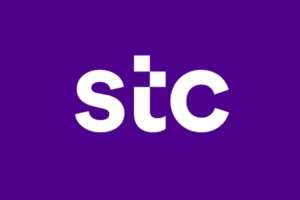Results of 3G speed tests carried out by consumers during 2011 show that London has the slowest average speeds of any of the UK’s top ten largest cities (by population), according to the price comparison a website, uSwitch.
The speed seen in London is 24{e1f18614b95d3cd6e4b3128e1cd15d99b042a60a5a19c19b7a8e07e7495efa10} slower than Portsmouth — the fastest city in the UK — and trails behind neighbouring capital cities Cardiff (2.90Mbps) and Edinburgh (2.94Mbps).
Birmingham, the UK’s second largest city with a thriving business community, fares little better, lagging behind smaller cities such as Edinburgh, Leeds and Liverpool with an average download speed of 2.81Mbps.
The broadband speed reports are based on an iPhone app installed by uSwitch customers.
A recent uSwitch.com survey of more than 1,000 smartphone users reveals that many of us are disappointed with the 3G connection and speeds we are currently receiving. Four out of ten (39{e1f18614b95d3cd6e4b3128e1cd15d99b042a60a5a19c19b7a8e07e7495efa10}) respondents are unhappy with their current 3G speeds, with almost half (47{e1f18614b95d3cd6e4b3128e1cd15d99b042a60a5a19c19b7a8e07e7495efa10}) saying their download speeds are ‘slow’. Only 6{e1f18614b95d3cd6e4b3128e1cd15d99b042a60a5a19c19b7a8e07e7495efa10} are happy with the ‘very fast’ speed of their mobile internet.
Survey respondents clearly feel their 3G service quality leaves a lot to be desired, with almost half (47{e1f18614b95d3cd6e4b3128e1cd15d99b042a60a5a19c19b7a8e07e7495efa10}) describing their coverage as ‘patchy’ or ‘non existent’, while 42{e1f18614b95d3cd6e4b3128e1cd15d99b042a60a5a19c19b7a8e07e7495efa10} report problems with mobile broadband connections on a daily basis. A massive 91{e1f18614b95d3cd6e4b3128e1cd15d99b042a60a5a19c19b7a8e07e7495efa10} experience 3G blackspots where there is simply no coverage at all.
Mobile broadband might be designed for on-the-go web browsing, but smartphone users claim to experience problems with 3G reception when outdoors (14{e1f18614b95d3cd6e4b3128e1cd15d99b042a60a5a19c19b7a8e07e7495efa10}), while 17{e1f18614b95d3cd6e4b3128e1cd15d99b042a60a5a19c19b7a8e07e7495efa10} said 3G coverage was problematic on trains and 13{e1f18614b95d3cd6e4b3128e1cd15d99b042a60a5a19c19b7a8e07e7495efa10} say travelling in a car causes problems. But by far the biggest gripe was getting 3G coverage when not al fresco, with 43{e1f18614b95d3cd6e4b3128e1cd15d99b042a60a5a19c19b7a8e07e7495efa10} reporting problems when trying to connect to 3G indoors.
Looking at 3G speeds across the mobile phone networks, O2 is top of the pile with average 3G download speeds of 3.22Mbps. But Vodafone is hot on its heels, with customers receiving average speeds of 2.95Mbps. With some catching up to do are Orange and T-Mobile, currently the slowest providers with average speeds of 2.67Mbps and 1.65Mbps respectively – although their customers are increasingly benefiting from increased 3G coverage since the networks merged.
By: Ian Mansfield
May 9, 2025











